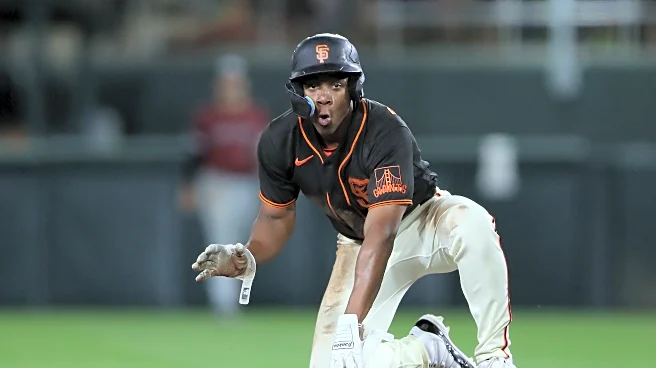What is the story about?
What's Happening?
The Federal Communications Commission (FCC) is under scrutiny following comments by Chairman Brendan Carr, who suggested the possibility of revoking Disney's broadcast license. This came after two major ABC affiliates, Sinclair and Nexstar, decided to boycott Jimmy Kimmel's show due to comments he made about the assassination of conservative activist Charlie Kirk. Carr's remarks, made during an interview with podcaster Benny Johnson, implied that the FCC could take action against broadcasters like Disney if they continued to air content deemed as news distortion. This led to ABC suspending Kimmel's show, although it was later reinstated after public backlash. The situation highlights ongoing tensions between the Trump administration and media outlets, with President Trump expressing approval of ABC's initial decision to suspend Kimmel.
Why It's Important?
The FCC's actions and the Trump administration's stance on media regulation raise significant concerns about press freedom in the United States. The potential revocation of broadcast licenses based on content could set a precedent that threatens the independence of media outlets. This situation underscores the broader issue of state power being used to influence media narratives, which could have long-term implications for democratic norms and the role of the press in holding power to account. The backlash from consumers, celebrities, and political figures indicates a strong societal pushback against perceived threats to free speech.
What's Next?
The controversy surrounding the FCC's potential actions against Disney and other broadcasters is likely to continue, with possible legal challenges and further public debate. Stakeholders, including media companies, civil rights organizations, and political leaders, may seek to address the implications of such regulatory threats. The situation could lead to increased scrutiny of the FCC's role and the need for clear guidelines to protect press freedom while ensuring responsible broadcasting.
Beyond the Headlines
This development highlights the delicate balance between regulatory oversight and freedom of expression. The FCC's actions could prompt discussions about the ethical responsibilities of media outlets and the potential for government overreach. The situation also reflects broader cultural and political divides in the U.S., where media content and its regulation are often at the center of ideological battles.















